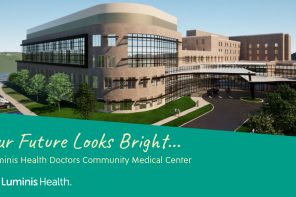May is Better Hearing and Speech Month. It’s a time when speech-language pathologists (SLPs), like me, help raise awareness about how our profession can help with a variety of communication and swallowing disorders.
More than help with stuttering
For many years there has been confusion regarding speech therapy. People often only associate it with help for stuttering. When I first became a licensed speech therapist, I assumed the majority of people would know what I could do to help them. However, I quickly found that there was a need to expand our knowledge about speech therapy, even among the medical community.
Not just for kids
Also, it’s important to realize speech therapy benefits more than just children. SLPs treat patients of all ages, from birth through end-of-life care. In 2014, seniors over 65 represented 14.5 percent of the population. By 2040 their numbers are expected to grow to more than 21 percent of the population. As people age, normal changes occur in their speech, language, memory and swallowing. Plus, their chances of having a communication or swallowing disorder related to a disease increases.
Ways adult speech therapy can help
Adult speech therapy helps a wide range of conditions that affect speech, language and swallowing. It helps with progressive neurological diseases like primary lateral sclerosis (PLS), amyotrophic lateral sclerosis (ALS), dementia and Huntington’s disease, as well as stroke and traumatic brain injury. Speech therapy also helps with a broad range of other diagnoses, from oral and laryngeal cancer to developmental disorders.
Here is a breakdown of the many facets of adult speech therapy:
Cognitive therapy: memory; attention; executive functioning, including organization, planning, problem solving, etc.; functional/daily living tasks
Speech therapy: voice; dysarthria (slow speech, weakness); apraxia (difficulty with executing/planning speech movements); accent reduction; stuttering; voice/communication for transgender clients
Language therapy: aphasia, which is a language disorder that can result in difficulties with any combination of word retrieval or verbal expression, understanding what you hear, understanding what you read, and being able to write out your thoughts
Swallowing therapy: dysphagia (difficulty swallowing); aspiration pneumonia; mouth, throat, lip, tongue or cheek weakness
Communication options: augmentative and alternative communication (AAC) devices, tracheostomy/ventilator communication
Speech therapists guide you and your family through life changes. We clinically challenge your skills using evidence-based practice techniques and support you through the rehabilitation process. Our goal is to improve your quality of life by helping you reach functional goals.
If you think you or a loved one could benefit from a speech therapy consultation, please call 443-481-1140 to schedule an appointment with AAMG Physical Therapy. Our outpatient speech therapists are available in Crofton and Annapolis.

Anusha Sivalingam, SLP, is a speech language pathologist with Anne Arundel Medical Group (AAMG) Physical Therapy. To reach her office, call 443-481-1140.




